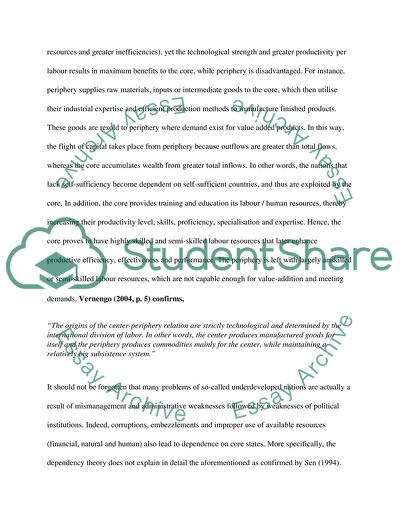Cite this document
(Is Dependency Theory still Relevant Today Term Paper, n.d.)
Is Dependency Theory still Relevant Today Term Paper. Retrieved from https://studentshare.org/politics/1746715-is-dependency-theory-still-relevant-today
Is Dependency Theory still Relevant Today Term Paper. Retrieved from https://studentshare.org/politics/1746715-is-dependency-theory-still-relevant-today
(Is Dependency Theory Still Relevant Today Term Paper)
Is Dependency Theory Still Relevant Today Term Paper. https://studentshare.org/politics/1746715-is-dependency-theory-still-relevant-today.
Is Dependency Theory Still Relevant Today Term Paper. https://studentshare.org/politics/1746715-is-dependency-theory-still-relevant-today.
“Is Dependency Theory Still Relevant Today Term Paper”. https://studentshare.org/politics/1746715-is-dependency-theory-still-relevant-today.


